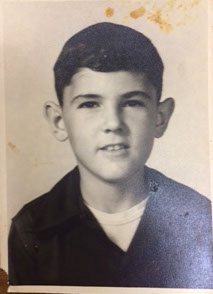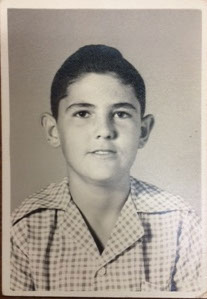I wrote poems imagining my uncle’s and my mother’s childhood and their longing to escape—all as a way to create a history, however phantasmic, that would ground my own escape, my own desires for re-creation.
I imagined a past in rural Louisiana, the difficulty of growing up gay south of Lake Charles—both the bad in a poem like “Daddy” and the good, however covert, in “Physique Pictorial, 1955.”
Physique Pictorial, 1955
Glen was always the
first to fetch the
mail, stalking the post-
man through the
splintered glass of
his bedroom window.
He should’ve been out-
side his mother said, but
the mail-order catalogue
spoke with the voice
of the burning bush:
this is the flesh you
want, these are the
bodies you may
graft onto your skin.
Oddly, the paper was
brittle and the ink
ran when wet, but
here is a boy set a-
gainst a cheap sun,
his wrists in bracelets
of gold, little links
pinning him open for
inspection; at least,
we think it’s gold
but somehow it does-
n’t matter: desire can
spell burning in eith-
er black or white. And
look, mom, this is the
body I might have some-
day, but she doesn’t
hear what you do in
the bathroom anymore,
though part of her knows
that it’s only beginning:
you have received
the calling, burning
your fingers when you
hide the magazine
in the back of your
closet: nothing is so
heavy-handed as the
truth.

